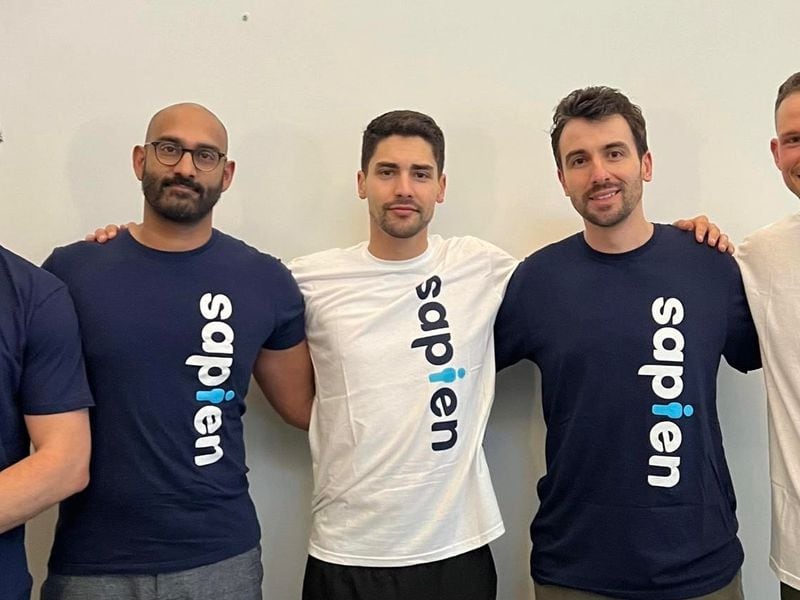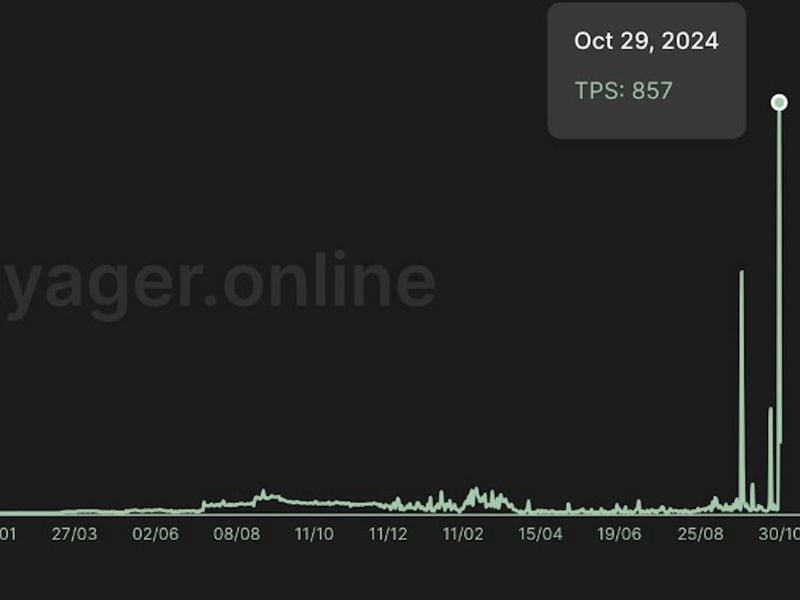-
The Sapien team is led by Rowan Stone, the former co-creator of Coinbase’s layer 2 network Base, and Trevor Koverko, founder of Polymath and author of RWA standard ERC1400.
-
As well as earning USDC or reward points, AI workers post collateral and like a proof-of-stake blockchain, that collateral can be slashed for cheating or using bots.
Sapien, a startup that incentivizes people to supply all sorts of data for use in AI, has raised $10.5 million in seed funding led by VC firm Variant, with participation from Primitive Ventures, Animoca, Yield Game Guild and HF0.
The Sapien team, led by Rowan Stone, the former co-creator of Coinbase’s layer 2 network Base, and Trevor Koverko, founder of Polymath and author of RWA standard ERC1400, are incentivizing a growing army of data labelling workers with with either USDC stablecoin or a system of reward points. The data work can be anything from labelling everyday items like traffic signs using a mobile device, to pinpointing particular types of cancer cells.
AI is often framed in terms of some insidious dystopian creep that will gradually take over our lives. Less talked about is the flipside, where entirely new forms of work can be created, in this case a global pool of decentralized AI workers.
“The big unlock that OpenAI found was that in order to help AI be smarter and get closer to human level reasoning is to throw industrial scale human labor at the problem,” said Sapien CEO Rowan Stone in an interview. “And so literally, just have lots and lots of people provide their knowledge or their input in order to make the models smarter.”
Sapien is currently working to solve data-driven challenges for 17 large enterprise partners, that includes the likes of Alibaba and Baidu, and the firm has so far recruited over a hundred thousand AI workers to provide data.
There are already large firms harvesting labeled data to train AI applications, some of which use low paid workers in countries like the Philippines. But Sapien wants to gamify this work and make it less of a factory-based activity.
On-chain economics also comes into play because Sapien workers must have some skin in the game in the form of collateral to participate, which they can either earn their way towards having, or they can buy up front.
“The simple mechanism here is exactly like ether proof-of-stake, minus the back of house consensus,” Stone said. “If workers do good work, then they are paid extra because they’re valuable to us. If they do bad work, or they cheat, or they use bots, or there’s some type of foul play, then we have a method to claw back some of that collateral.”
Angel investors such as YGG founder Gabby Dizon and Softbank Vision Fund alum Kevin Jiang were also included in the seed funding.


























